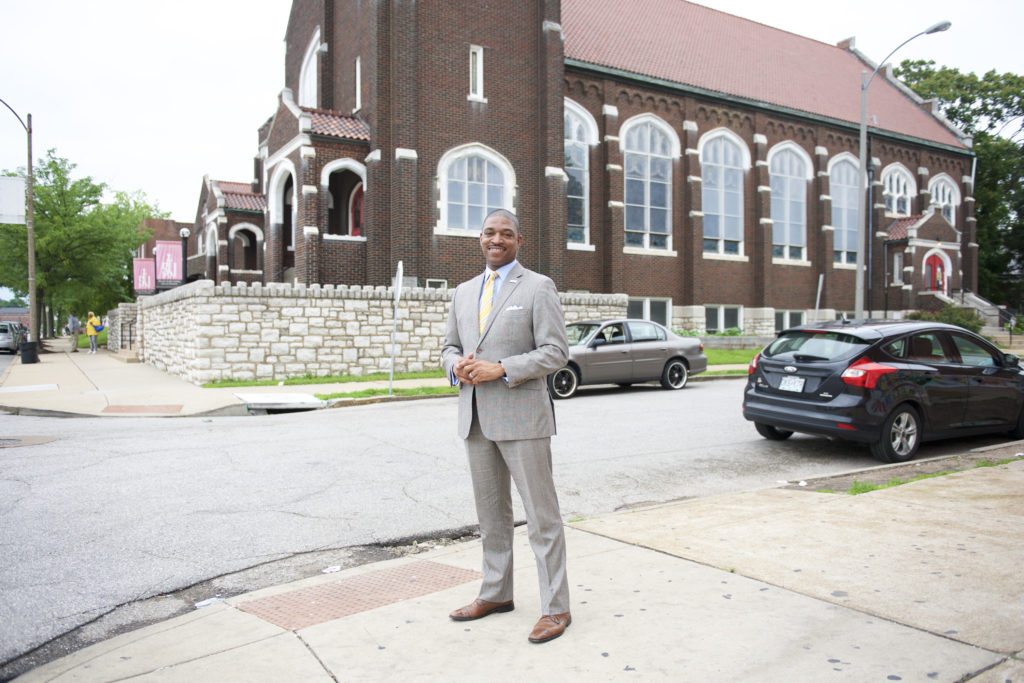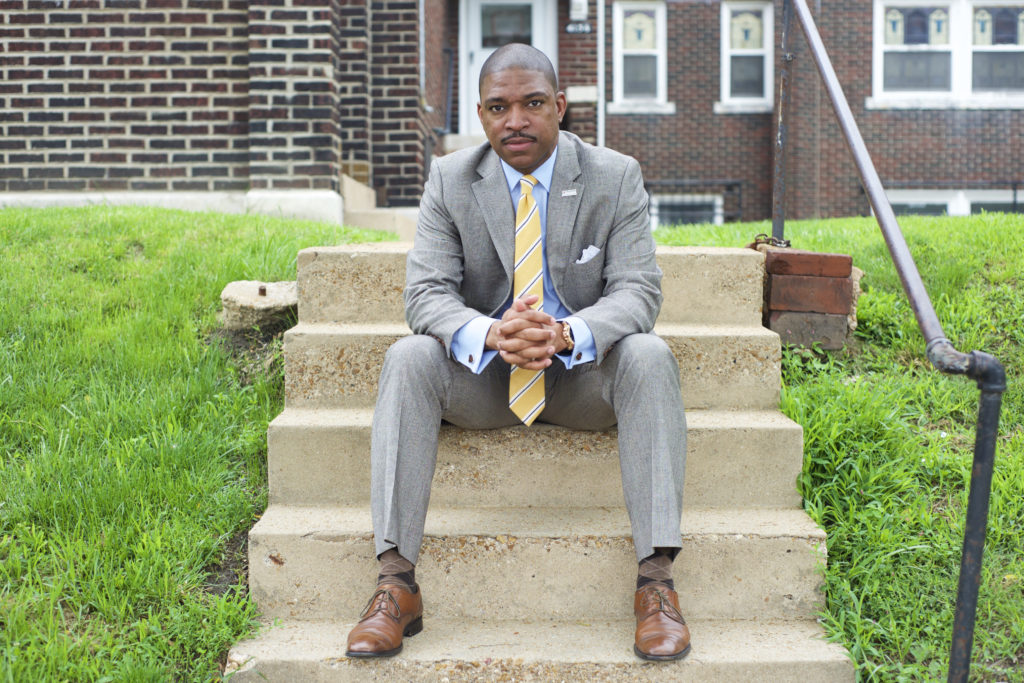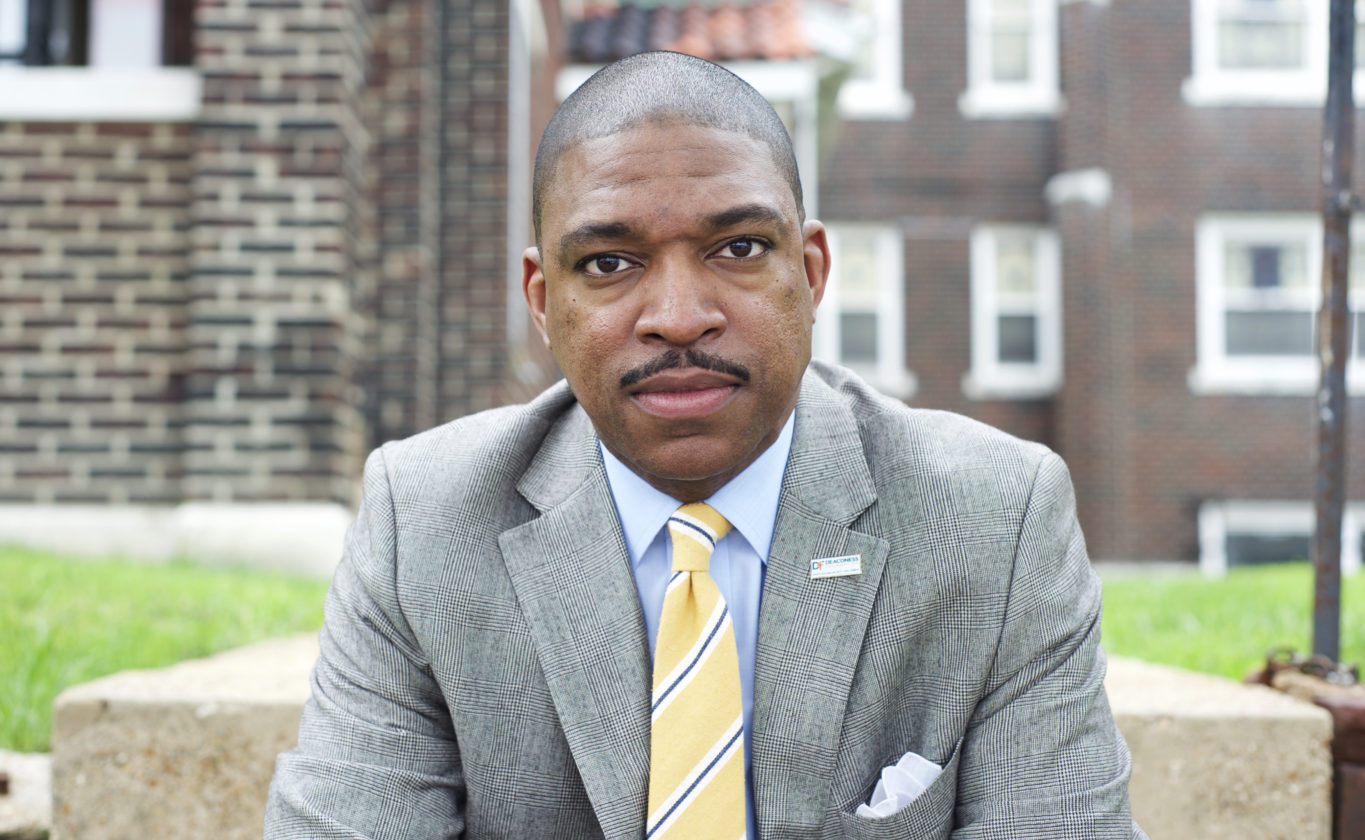There are a lot of more usual suspects who could have co-chaired the Commission. It probably made a whole lot better sense to appoint somebody else. But God gave me an opportunity to translate what was going on in the street at the time into the Commission’s work and attempt to do so effectively to the policy makers in the region. I am a street preacher. I have been placed in this unique role of translating what’s really going on in the lives of people to proclaim that which is happening in places many people, particularly policy makers, don’t get to go. People making decisions in those high-rise buildings about what’s happening to people in these neighborhoods need to regularly spend time here. So I needed to stay here in order to be authentic to that role, authentic and faithful to the pain, and then to the work of the Commission.
The most difficult thing for me on August 9th was wrestling with the fact that I had to frame it on August 10th for a waiting congregation. What is the good news 22 hours after the community is visited with a young man lying in the middle of the street for four and a half hours? I saw on social media the picture of Mike’s stepfather holding a sign that said the police just killed his son. I posted something on Facebook about it. “Pastors, this is the time to change your sermon. You’ve got to rewrite the sermon. This is one of those moments. Frankly, what’s the good news? What’s the challenge? What’s the charge in the world where this happens? What is the good news on Sunday morning?”
I went to my office at the foundation where I have a box of books, like Cut Dead But Still Alive by Gregory Ellison, and I placed them on my altar that Sunday as an act of consecration to affirm the sacred responsibility that we had to care for African American young men. We later brought Greg to preach and teach the kind of transformation that’s required to create circles of support and trust and walk alongside young people who had been impacted by trauma and whose lives are endangered.

Starsky Wilson, Ferguson Commission Co-Chair, photos by Lindy Drew
My sons are 10, 7, and 5. One day, I pick up the boys from the bus stop, I’m listening to NPR, and they’re talking about Michael Brown on the radio. My son, Starsky, who went to Trayvon Martin vigils and rallied with me, says, “Daddy, could you turn that down a little bit? Every time I hear about him my stomach starts to hurt.” I didn’t take him to ground zero at West Florissant and Canfield or to QuikTrip to protests. They’ve seen the burned-out buildings, but I never took them to the action and rallies on the street. Still, he felt some physical response of a trauma that our whole community went through. The one place we did take the boys was to the Mother’s March in Clayton. There’s a picture that someone took there of Starsky, and I don’t know when they got it, but it’s his profile shot and he’s off by himself, kind of bent over, and crying. I showed it to him and said, “What was going on?” He said, “There was just so much pain.” Kids hurt. It’s not just the ones who live in Canfield. It’s not just the ones who go to Normandy High School, or whatever. My wife’s a dentist. I’m the CEO of a foundation. We both have graduate degrees. He goes to one of the best elementary schools that happens to be a public school in his neighborhood. Both parents are together in the home. Grandmother now lives in town. He lacks nothing. But he exhibited the symptoms of toxic stress because of systematized, institutional, structural racism. Every indicator shows that this kid will go to a Historically Black College or University, and then he’ll go to an Ivy League graduate school. He’s good. He’s golden! But he’s hurting because of this stuff.
Maybe my work is to capture people who care so they can capture the people who haven’t quite figured out this impacts them. I’m challenged by having to make the case in economic terms. We have to help people understand that if you’re fine with St. Louis being 42nd in economic mobility among the top 50 communities, then okay. That’s fine. I would think if you’re at the Chamber, or you’re a member of Civic Progress or the Civic Business Council, and you’ve got to build a thriving business in this region, you might care that we’re 42nd in economic mobility. Perhaps we’ll continue to draw upon people’s care for children. Asher Ben-Arieh of the Hebrew University of Jerusalem, a global leader in child well-being, suggests that when you ask children about their well-being, they talk about their safety first. They don’t talk about education. They don’t even talk about health. They talk about whether they feel safe. And some key indicators in that are, “What is your belief about the safety of your neighborhood? What is your perspective, as a child, of the local police?” They think safety first. So to talk about police violence, police brutality, and citizen police relationships in the context of children, perhaps that gets people to get it. If you really care about kids, you care about how police are perceived.
In the reality of our region – fragmented as it is by rivers, by imaginary lines that create municipalities, by policies that lead to the segregation of the people, and by sociological stratification — we are not, in any sense, community in that theological way. It is, at best, an aspiration for who we could be.

“Of all the times you have been interviewed, what’s the question they haven’t asked you that you wish they would ask?”
People who are asking about the Commission work never ask about the people who are protesting. The people who ask about the policy recommendations or the number of meetings or how much we’re paying a consultant never ask what tear gas smells like or what pepper spray feels like. No one’s ever asked me why I stayed out until four in the morning beside protesters or why I pray for them in front of police. Because no one wants to talk about that. They don’t ask me what it feels like to go to the corner of Grand and Arsenal to get communion bread or to get Qdoba for my family and remember seeing militarized vehicles on that same corner in my neighborhood. And no one asks what it feels like to serve with a group of people, to have equal voice with folks who could care less about the fact that that’s what happened in my neighborhood, and for them to be making decisions about what’s going to impact my kids and the young people I went out there to stand with and pray for. They don’t ask that question because they don’t really want to know. And they definitely don’t want to tell anybody else what that feels like. So people ask process questions. They don’t ask people questions.
“What’s something that hasn’t been said yet that you would like people to know that maybe they don’t know?”
A lot of folks who have been characterized as ignorant and loud, even because of how they showed up in Commission meetings, are brilliant people with a deep sense of commitment to the future of the region and to a broad understanding of history who feel that they are called to this moment. It’s not about disturbance and disruption. It’s about the call and social change and seminal moments in history of which this can be one if we’re faithful. This matter of healing that the Commission is involved with in the community is a matter of faith. It is a matter of religion. It is a matter that is transcendence. We’re going to need all those kinds of resources – spiritual practices, transcending capacities, the abilities to tap into things and beings greater than ourselves – to get to the kind of healing we actually need.
“What would make a tremendous difference in the work that you do?”
Vacation.


#FwdThruFerguson